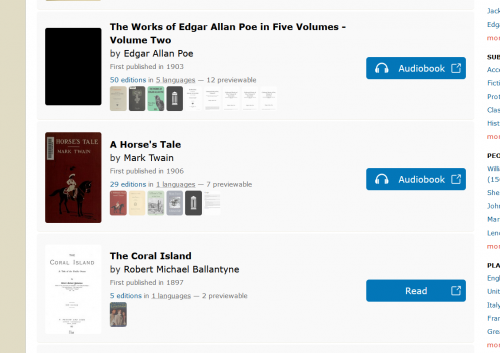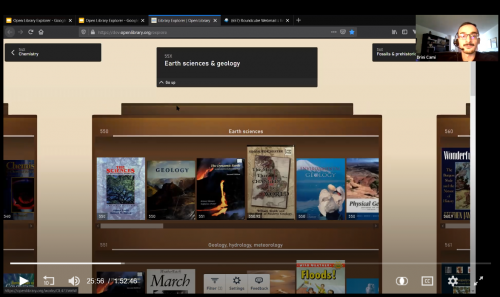
Dear readers,
I sit here, cosily on a cold winter’s night looking out over the Mississauga cityscape, thinking about the important mission we planned for and set out to accomplish almost a year ago: Empowering you, dear readers, to better search for and discover books on Open Library.
For too many years now you’ve been limited in how books can be found from Open Library’s extensive catalogue. Since the dawn of its existence, Open Library’s goal has been to make one web page for every book ever published. And to make those books accessible! But one problem with having millions and millions of book records, is that finding just the book you need can be difficult. Search is your gateway. Your one way to find what you’re looking for. But what if search can’t get you what you need?
Well for many readers, it was impossible to find what they were looking for. The search experience was plagued with limitations. It was impossible to find books in a certain language, or from a certain publisher. Sometimes, your search queries would even return no results at all — even for books actually in the library!
This past week I’ve been busy rolling out our improved search experience as the default across the site. Here are the previously impossible searches that are now possible!
Find borrowable or readable books in a specific language. Previously, the results wouldn’t guarantee that a borrowable or readable edition of the search result was in the specified language. Now you can! For example, for any fellow readers who are trying to learn German, you can now easily find Borrowable or Readable books in German ! Or… how about Spanish? Japanese? Polish? Take your pick!
Search results now prefer editions matching your language. If you have Open Library’s language set to French and you search for “harry potter”, you will see the French cover and title of Harry Potter first. Try it!
Combinations of edition query fields. Now, queries can filter on edition data as well as work data. All these queries used to be impossible on Open Library:
- Stephen King books available to read in French
- Children’s books available to read in Chinese
- LibriVox audiobooks in German
- Available Graywolf Press books from the 80s
Search results now show the edition that best matches your query. Now, if you search for “one hundred years of solitude”, because your query is in English (regardless of your display language), the English title One Hundred Years of Solitude will be displayed instead of the original Spanish title, Cien años de soledad. Try it! Previously, searching for “one hundred years of solitude” wouldn’t match the correct book at all!
And for any developers out there, these features are also available via the Search API. You just need to add `editions` to the `fields` parameter to get back a new editions subfield with matching edition data.
Search is a behemoth, and there’s always more to do! Here are some of the tweaks and improvements we have lined up to improve upon this work:
- Use this information in more places throughout the site
- Add a setting to decouple the UI language from the user’s preferred content language
- Fix regression where searching by author name does not match books by that author
- And many more fixes and improvements!
These changes required an overhaul of our core Solr-based search infrastructure to make search results edition-aware. But now that this information is in our search engine, we just need to add it to more and more places. These are features that readers have long desired for searching Open Library. And now, their expectations are reality! Open Library just got a little easier to use, and a little more accessible and inclusive.
Happy Reading!
Drini (with some generous writing support and photography from Bart Brewinski)







